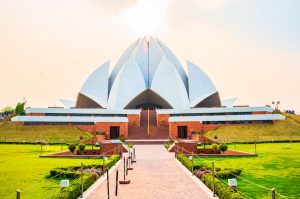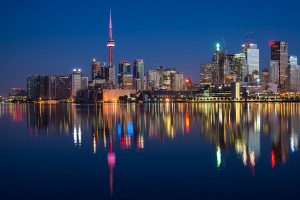Impact of COVID-19 on Travel & Tours

The year 2020 started with a bang lots of promise and hope on all fronts. Businesses were expected to take off at a jet speed. Economy was predicted to hit the peak. Investors were buoyant of high returns, and there we go a fresh new year that would later go on to be one of the worst years in the first half of the 21st century. The outbreak of one of the worst pandemics, the COVID-19 or the Novel Coronavirus, has changed the very dynamics of the business world. Almost every sector has been challenged and tormented to the point that the road to recovery now seems bumpy.
The travel and tourism industry is the worst affected industry with precious lives lost and millions of jobs lost. The hotel sector which shares a symbiotic relationship with the travel industry was lost in the whirlwind of the growing number of COVID-19 cases. Governments around the world, as the first concrete measure towards curbing the pandemic, shut international borders down. Travel restrictions were imposed on a never-seen scale and the movement of both people and goods came to a grinding halt.
The fear of uncertainty of the pandemic held people in the grip of fear throughout the year. In fact, there was no respite for the 1.3 billion people of India as they were locked indefinitely to their homes and couldn’t move out. India’s GDP estimates were down even more to negative figures, signaling deep trouble in the form of an unprecedented recession. These factors drove the world governments to announce relief packages to revive the ailing economy. COVID restrictions also meant the social interactions are going to be online. Wearing masks, gloves and using sanitizers were mandated to flatten the curve. Social distancing became the new norm, and was imposed when COVID restrictions were brought on. This also ensured that hotels and restaurants don’t accommodate customers exceeding half their capacity.
Travel bookings and reservations were either restricted or no longer permitted. Though these measures were able to contain the social spread of the pandemic temporarily, normalcy of life wasn’t returning any soon due to the lack of a known vaccine and effective treatments. If at all vaccines were developed, will it prevent any further outbreak of the COVID pandemic? These were some of the questions, as a matter of fact, that took us all into 2021.
Global conferences, meets and summits were a strict no-no; the MICE market tourism ebbed further and would stay in dormancy for some more months. The entire travel ecosystem, including tour operators, hospitality, travel agencies and all kinds of transportation services, besides many others, remain fixated on the hopes of a vaccine. As per a report from the World Travel and Tourism Council (WTCC), the pandemic is expected to cost the tourism sector almost USD 22 billion, in addition to job loss of 50 million globally. Therefore, it is no surprise that tourism in India has been witnessing an epic fall post COVID since 2020.
Come 2021, though Coronavirus and its effects declined gradually in Asian nations, especially India, a new strain of the virus shook the European countries including the UK. Another COVID variant with traces first found in South Africa proved menacing in India, with a global vaccination program the only hope of curbing the rapid spread of the next wave of pandemic. It was believed widely by the business ecosystem that vaccination is the only panacea to the crises that it went through last year. The long wait was excruciating in many ways. The availability of a vaccine with proven efficacy would mean that travel can resume with a greater sense of confidence. Hold on, it wasn’t the case actually.
People too wanted to come out of the shackles that they were in, confined to their homes for long. Mental depression and anxiety posed new societal issues. Communication and social interaction online only added to the psychological troubles at large. One-on-one personalization lost sheen over time. It was left to the discretion of the concerned parties whether to travel down and engage themselves. Messaging apps such as WhatsApp, Telegram, and communication tools including Zoom, Google Meet, Airmeet or Microsoft Team ensured businesses sustain post COVID situation. What’s more interesting is that hygiene and proper sanitation have gained precedence over everything else. And when that’s the case, people including ardent travelers, decided that travel may well wait until everything is fine. For many travelling is similar to opening the Pandora’s box (literally). The last thing you, as a traveler, would want is to get infected by a co-passenger on a train, bus or flight aboard, whether the COVID-19 safety protocols are already in place or you’ve been vaccinated. This accounts for a ‘no-travel’ situation where safety has the last laugh, and rightly so.
Bleisure, a combination of business and leisure, was one of the biggest revenue areas for the travel and tourism industry. Corporates, established businesses and even startups were willingly investing in travel for greater business connects, expansion of market presence, improved client coordination offshore, fresh marketing opportunities and bit of fun for their employees to partake in. Though COVID protocols are incorporated in the company travel management policies, there’s largely a divided opinion among employees whether to travel or not, in the wake of the pandemic, amidst the looming fear of uncertainty. But that’s how COVID has shaped and re-shaped itself this year to arrest travel operations anywhere in the world.
Business travel is in itself a matured market segment before the outbreak of the pandemic, growing at a steady rate of nearly 4.6% in the forecast period between 2021 and 2028, and is slated to reach USD 2,096.14 billion by 2028, according to a study conducted by Data Bridge Market Research on business travel market. The popularity of business travel is due to the fact that it incorporates the leisure elements and recreational activities to eliminate stress and enhance work efficiency, thereby accelerating the growth of the travel and tourism sector. Now the question is: When is business travel likely to take off as most employees prefer work from home (WFH) as an alternative to punching the office card every morning. Not so professional you may say, and not to mention practical work difficulties. WFH, as an innovative concept, has been successful in keeping the business momentum going strong throughout the pandemic and beyond. And this is a compelling case for sure that will thwart future business travel activities. The message for the travel industry is loud and clear: wait for the pandemic to clear in order to dispel the fear psychosis amongst travelling employees.
The travel sector faced an another jolt when business summits, conferences, meets and exhibitions all over the world had to be either suspended or deferred to another date in the future. Again, advanced travel bookings and hotel reservations were cancelled in large numbers during the early part of 2020. Thanks to today’s meeting and communication tools, these events took the ‘digital’ route, whilst the travel agencies and operators were left in the dark waiting for life to restore to normalcy. But isn’t that the ugly face of the pandemic crippling lives every single day. You bet.
India is a land of diverse religions and different cultural practices and traditions. No wonder the market for religious/spiritual tourism or pilgrimages was booming not long ago. Travel to 2020, religious places were temporarily shut (God forbid!) no sooner than the first announcement of lockdowns were made by the Central Government. Make home your temple, and your heart a dwelling place of God was written on the wall—and that was the way forward—to invoke the blessings of the divine. The travel industry lost another opportunity to revive its hopes of resurrection when the second wave of pandemic made headlines earlier this year. Call it bad omen, or whatever you feel like, the travel industry needs divine guidance more than never before! Not to mention other categories like honeymoon vacations, educational tours, adventure tourism and leisure travel that never looked up, travel faced a “slow-death scenario”.
What is the future of travel like? It was widely debated whether traditional businesses will ever survive. By all means when they are given a digital facelift. With social distancing proven to tone down the effects of the social spread of the pandemic, contactless or touchless operation will be followed in all travel operations, be it checking-in at the hotel or booking a hotel room. The deployment of innovative technologies like AI, ML and Robotics will change the very face of travel business in all walks of life. And the day is not far where we will be self-guided by a powerful travel bot from the start to the finish of the tour. In other words, and just in this world, self-guided tours will become more popular that you may imagine. Even the best travel agency in India may have to relook travel, strategizing how it can arrange a safe tour marked by greater security and best practices for customers.






